Here's what advocates say were the biggest wins and losses for affordable housing in 2023
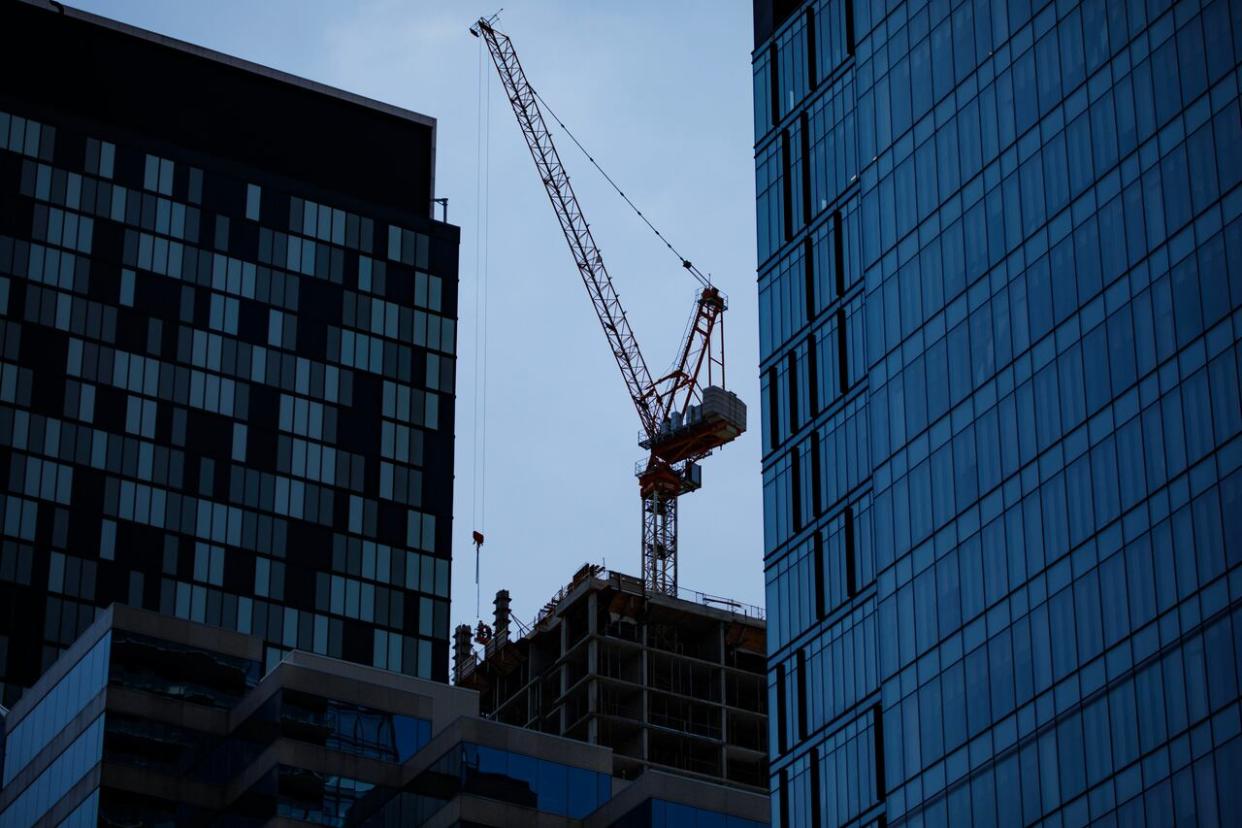
Toronto's housing crisis contributed to record numbers of residents having to choose this year between paying rent and buying food.
But there may be a silver lining, according to Mark Richardson, technical lead of Housing NowTO.
"It sometimes takes a crisis for people to start taking the solution seriously, and for governments to be willing to put their hand in their pocket and start to write the big checks that they need to write," he said.
CBC Toronto spoke with affordable housing advocates and experts to identify some of 2023's biggest wins — and where there's work yet to be done.
Big wins
1. The elimination of GST and HST on purpose-built rentals
This fall, the federal government, followed by the provincial government, announced plans to eliminate GST and HST on new purpose-built rental housing with the aim of spurring development.
Eric Lombardi, a housing advocate with More Neighbours Toronto, says he thinks it will make it "more competitive to build … that's a big one."
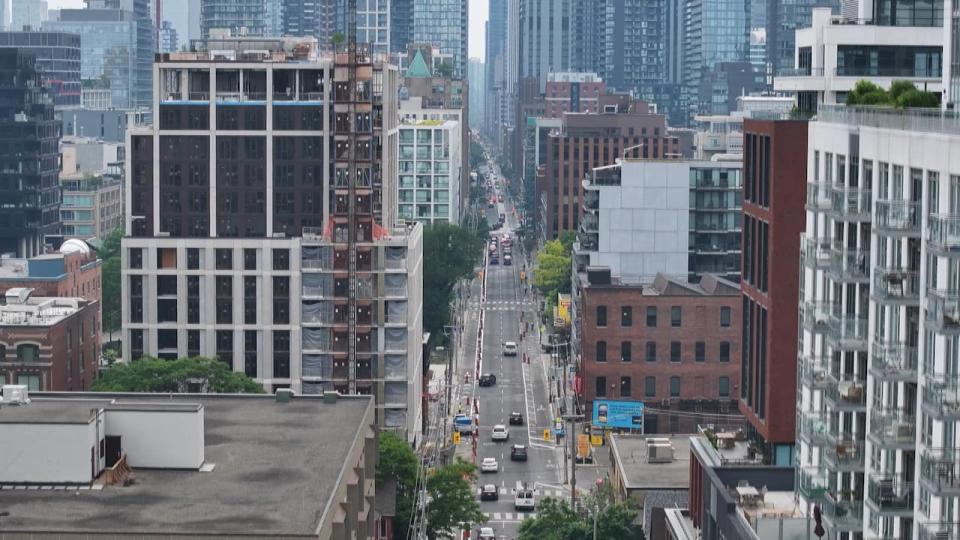
Housing advocates say the elimination of HST on purpose-built rentals was one of the most important moves of the year to increase rental housing. (CBC News)
"Purpose-built rental is what we need in order to make sure that affordability is spread out throughout the spectrum of renters," said Mwarigha, a vice president at WoodGreen Community Services, one of the city's largest social services agencies.
Mwarigha called the move "a really positive thing."
Richardson says he thinks it will mean more developers will choose to build purpose-built rental units in 2024 rather than condo projects.
2. The Housing Accelerator Fund
The federal government's Housing Accelerator Fund, introduced in the 2022 budget, allocates $4 billion until 2026-27 to encourage more building in cities.
Sean Fraser, federal housing minister since July, brought the program into the public eye with letters — written to municipalities and made public on social media — advising cities of housing reform policies they need to put in place to unlock the federal cash.
Fraser is a "champion" for creating a funding stream with strings attached, Lombardi said.

Federal housing minister Sean Fraser is being seen as a leader by housing advocates who spoke to CBC Toronto because he attached strings to federal money municipalities can receive. (Sean Kilpatrick/Canadian Press)
While Mwaringha likes the fund, he says municipalities shouldn't need to be the main source of progress. "The housing accelerator, as a metaphor, should be applied to all levels of government," he said.
3. Zoning changes
In November 2022, the provincial government introduced Bill 23, which included making it possible to build triplexes in many areas without having to apply for a rezoning.
In 2023, some municipalities, including Toronto and Mississauga, went further — allowing fourplexes.
Housing advocates praised the change, saying it allows for the densification of residential neighbourhoods currently dominated by single-family homes.
"That will enable the increase of the number of units per lot and is a big game changer" said Mwaringha, though the process to convert single-family homes into multiplexes may take a while yet.
Meanwhile, Lombardi says more units are needed on lots everywhere.
He says there are still too many areas of Toronto that do not allow mid-rise buildings and densification should go even further than fourplexes.
4. Olivia Chow's election
In June, Toronto elected Mayor Olivia Chow, who ran on the platform of making life more affordable — for renters in particular.
In the fall, Chow increased the city's affordable housing targets by 15,000 to 65,000 new units by 2030.
Chow could prove a game-changer in the months to come, Richardson says, because her housing targets are more aggressive and more representative of what's needed than those of her predecessor John Tory.
"Those are much more realistic targets and math than [what was] happening six to eight months ago in the city," he said.
Chow seems committed to the city's role in increasing affordability, said Lombardi. "It is a major priority of hers to actually see the city leveraging its land."
Mwarigha says Chow's housing plan will lead to success because it appropriately recognizes the public, private and non-profit sectors.
But advocates will be watching the mayor closely in 2024, hoping she can dig into her targets sooner rather than later.
After all, council approved 11 new affordable housing sites in December 2018 but shovels only got into the ground in 2023.
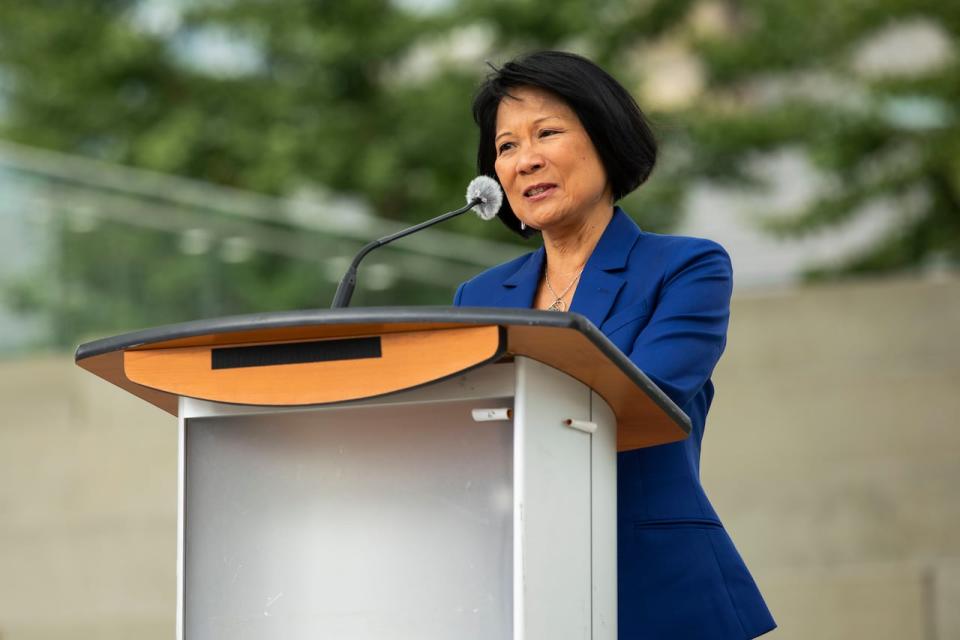
Toronto Mayor Olivia Chow received praise from several affordable housing advocates for increasing the targets for the number of affordable units to be built by 2030. (Michael Wilson/CBC)
Missed opportunities
1. Transitional, supportive housing slow to develop
In March, the Ontario government announced a $202 million increase in funding to prevent homelessness in its 2023 budget, bringing the total spending to $695 million annually.
Housing advocates told CBC Toronto they don't believe the provincial government has done enough to build transitional or supportive housing for people at risk of homelessness or overcoming addictions and mental health challenges — and it's not all about money.
Advocates say they are concerned about a site the city has identified for supportive housing on Cummer Avenue in Willowdale.
The city has asked for a Minister's Zoning Order to move forward with the project with haste and to end the appeals. But after hundreds of days waiting and hundreds of thousands more in city spending to store modular housing parts while they wait, an order has still not been signed.
"It's an absolute embarrassment," said Richardson.
"It should have a heritage plaque outside of it when it's finally constructed as a monument to political cowardice at the provincial level."
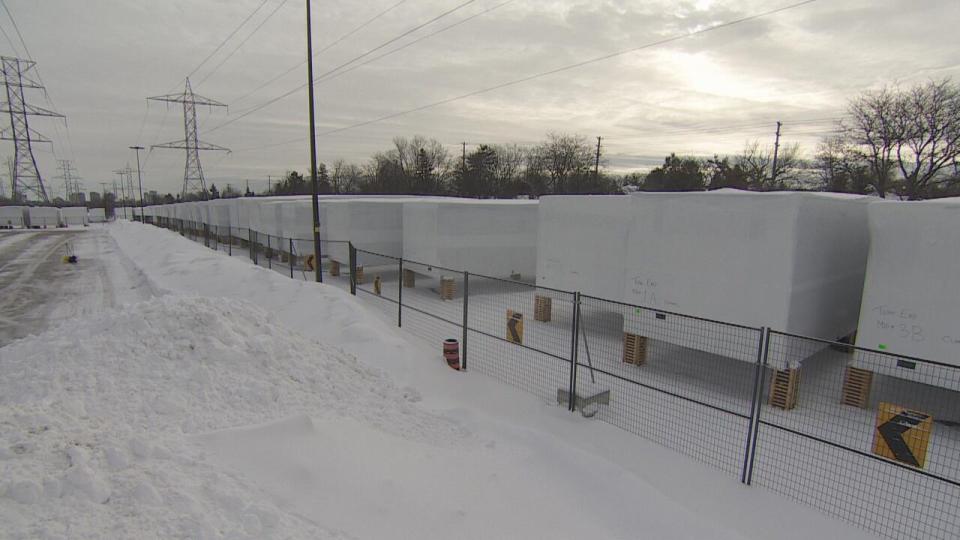
The components of the modular housing project are ready for assembly at a site in Willowdale, but the city is waiting for an MZO to move the project along. (CBC)
"It's actually a bit shameful how slowly they've acted on this issue," Lombardi said.
Alexandru Cioban, a spokesperson for the provincial housing minister, did not respond to a direct question about the project or when an MZO might be signed.
2. Ontario sells land to developers with no affordability requirements
As transit projects progressed, Infrastructure Ontario and Metrolinx released land it considered surplus next to Danforth GO and along the new Ontario Line.
Over the summer, Infrastructure Ontario posted information about a site at King and Bathurst streets — site of a future Ontario Line station — for interested bidders. But Richardson says the lack of affordable housing requirements in the listing is a major missed opportunity.
"It's frustrating because there are going to be thousands and thousands of units in those transit-oriented communities," he said.
It's not yet clear whether more affordable housing will be incorporated into sites developed around other stations in 2024. The province has indicated its interest in increased densification near transit on multiple occasions, but a ministry spokesperson did not address concerns they include affordable units.
3. Maintaining affordable rent
The average cost to rent a one-bedroom unit in Toronto was $2,614 per month as of October.
Any apartment, house, condo, basement or mobile home that someone has lived in since before Nov. 15, 2018 is covered by rent control — meaning rent can be increased once a year and the provincial government decides by how much.
Rent increases for 2023 and 2024 were set at a maximum of 2.5 per cent a month. However, the Ford government eliminated rent control for units built after 2018 during its first term.
On multiple occasions this past year, the Ontario NDP, among others, has called for its return.
The provincial government has prioritized supply, Mwarigha says, but has done far too little to preserve the affordability of rental units.
He says rents are climbing and the government should change the rules so a landlord cannot hike the rent on a unit when tenants change over. He says above guideline rent increases are also being approved far too often at the Landlord and Tenant Board.
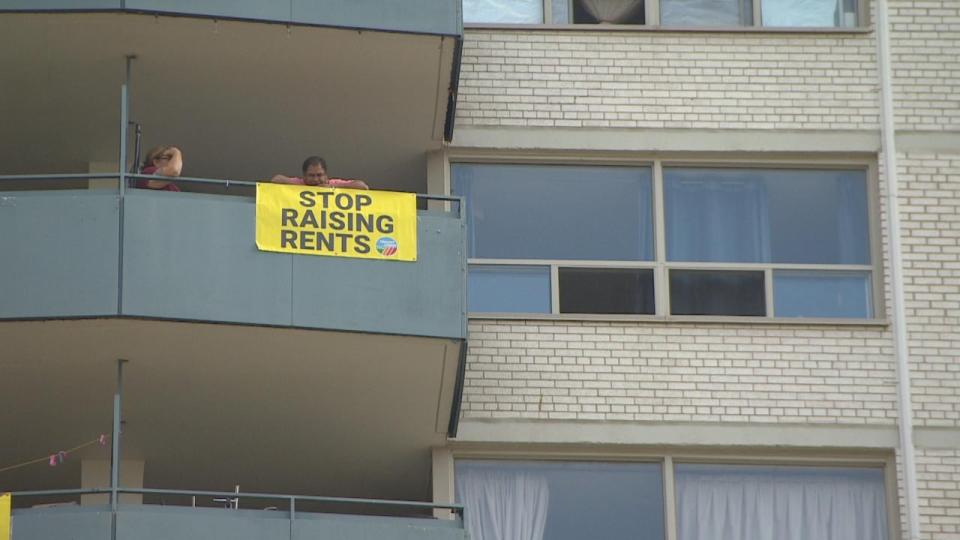
Housing advocates say the province should do more to preserve affordable rent. Residents at 1440 and 1442 Lawrence Avenue W. started a rent strike this fall to protest of above-guideline rent increases, among other maintenance issues at their buildings. (Spencer Gallichan-Lowe/CBC)
"That cocktail of issues … is creating an overall sense of insecurity of tenure," Mwarigha said.
In a statement, Cioban told CBC Toronto that: "Our government continues to work with our partners across the province to ensure that vulnerable Ontarians have access to safe and secure housing."
The province is calling on the federal government for more funding, Cioban said. Meanwhile, that's what the federal government says it's doing.
It announced $4.1 billion in funding in the fall to build almost 12,000 rental units across 73 nationwide projects, said Micaal Ahmed, a spokesperson for Fraser.
Ahmed says the federal government has also created or repaired more than 250,000 units since launching the National Housing Strategy in 2017.
"We know there is more to do and, in the months to come, we will continue leading the national effort to solve the housing crisis by helping accelerate construction and driving down costs for Canadians," he said.
What will 2024 hold?
Many households will begin the new year still grappling with high cost of living, rent included.
"There's a lot of fear ... that people have of losing their current apartment or having to look for another apartment," said Richardson.
But, he says there is also hope that all levels of government are moving in the right direction by trying to increase housing supply, often with improving affordability in mind.
More municipalities, Toronto included, may also find out in 2024 if they qualify for Housing Accelerator Fund dollars, and if so, how much they'll get.
"We need to start running," said Mwarigha, "like how you run a marathon."
He says he'll be watching politicians closely, and he'll be hoping they keep accelerating their efforts.


